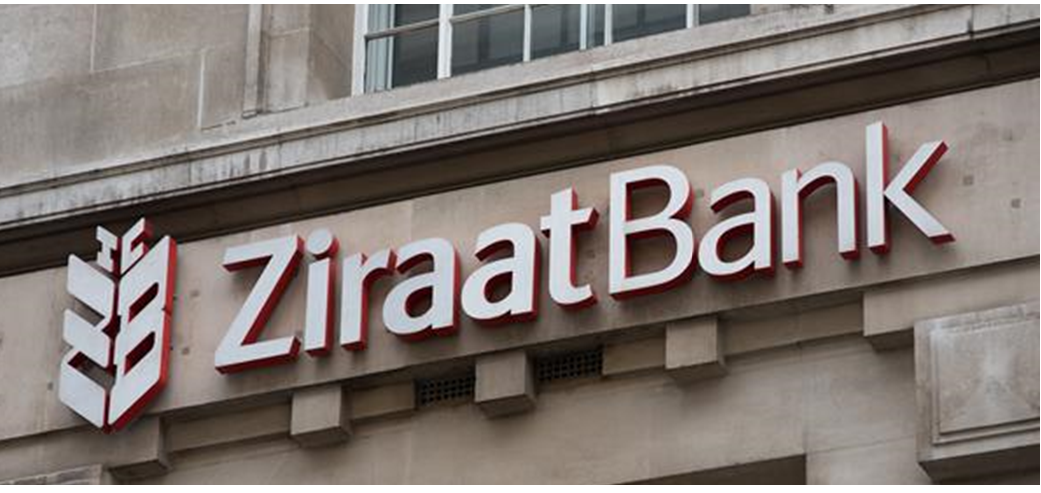Germany’s financial regulatory authority on August 26 announced a series of punitive measures against an unnamed financial institution that journalists have identified as Ziraat Bank International AG, a wholly owned subsidiary of Turkey’s largest public lender, Ziraat Bank. The state-owned bank’s apparent misconduct, which follows multiple scandals of a similar nature, underscores the extent to which Turkey has become a permissive jurisdiction for illicit finance.
Ziraat’s Germany banking activities restricted
Germany’s Federal Financial Supervisory Authority (BaFin) identified four measures it had taken against the unnamed financial institution over a period of ten months beginning last November. The measures include a ban on large loans, an increase in capital adequacy requirements and a restriction on accepting deposits, a warning to the institution’s manager, and the enlargement of deposit restrictions and the appointment of a special representative to the institution.
WATCH: Devil’s Triangle in Turkey: Mafia-State-AKP | Real Turkey
BaFin states that it may choose to announce measures against financial institutions anonymously “if the publication would cause disproportionately great damage to the institution, for example in the form of damage to its reputation or loss of trust by other market participants.”
The Turkish daily Sozcu reported on August 28 that the financial institution that BaFin targeted with “unprecedented bans, restrictions, and fines … that amount to shuttering the bank” is Ziraat Bank International AG. In July, Reuters reported that BaFin was in talks with Ziraat Bank International AG “over concerns about some loan transactions and the bank’s balance sheet.” Reuters’ sources accurately predicted that BaFin “may prohibit the bank from making large-scale loans, send a special inspector to review what has been done, or limit the bank’s few business areas.”
The same day as Reuters published its findings, the German business paper Handelsblatt reported that BaFin was “uncomfortable” with some of the Ziraat subsidiary’s transactions.
After opening its first branch in Germany in 1988, Ziraat Bank established Ziraat Bank International AG in Frankfurt in 2001. The subsidiary currently has seven branches in the country. Ziraat Bank International AG first came under German scrutiny in October 2017, although the U.S. Federal Reserve had already launched a probe of the parent company’s New York branch three years earlier. BaFin and the German police reportedly raided the lender’s Frankfurt headquarters due to allegations of money laundering, a claim the bank later denied. These allegations included suspicious money transfers from Russia and Turkey to and from Talha Gorgulu, a Turkish-German businessman with links to Turkish President Recep Tayyip Erdogan and his inner circle. German prosecutors extradited Gorgulu from Ukraine in 2019 and charged him with bankruptcy fraud. The following year, a separate team of public prosecutors reportedly launched an ongoing probe into Ziraat International AG, focused on money laundering and tax fraud resulting from abuses of wealth amnesties that Erdogan’s government has offered seven times since 2008.
WATCH: Turkey’s Convoluted Foreign Relations | Real Turkey
In October 2019, U.S. prosecutors charged Halkbank, Turkey’s second-largest public lender, for participating “in a multibillion-dollar scheme to evade U.S. sanctions on Iran” — a scheme that had already resulted in the conviction of Halkbank’s deputy general manager on related charges. During his 2017 trial, the main witness also implicated Ziraat Bank, which shuttered its New York branch less than two weeks later. More recently, Ziraat came under further scrutiny for allegations of questionable offshore deals, conflicts of interest, and irregular transactions with Turkey’s sovereign wealth fund.
German authorities could better serve both consumers and the integrity of the global financial system by disclosing which financial institution merited such severe punishments. Journalists may have identified the culprit, but denials will persist until BaFin removes the unwarranted veil of anonymity.
By Aykan Erdemir, Foundation for the Defense of Democracies
Follow our English language YouTube videos @ REAL TURKEY: https://www.youtube.com/channel/UCKpFJB4GFiNkhmpVZQ_d9Rg
And content at Twitter: @AtillaEng
Facebook: Real Turkey Channel: https://www.facebook.com/realturkeychannel/
